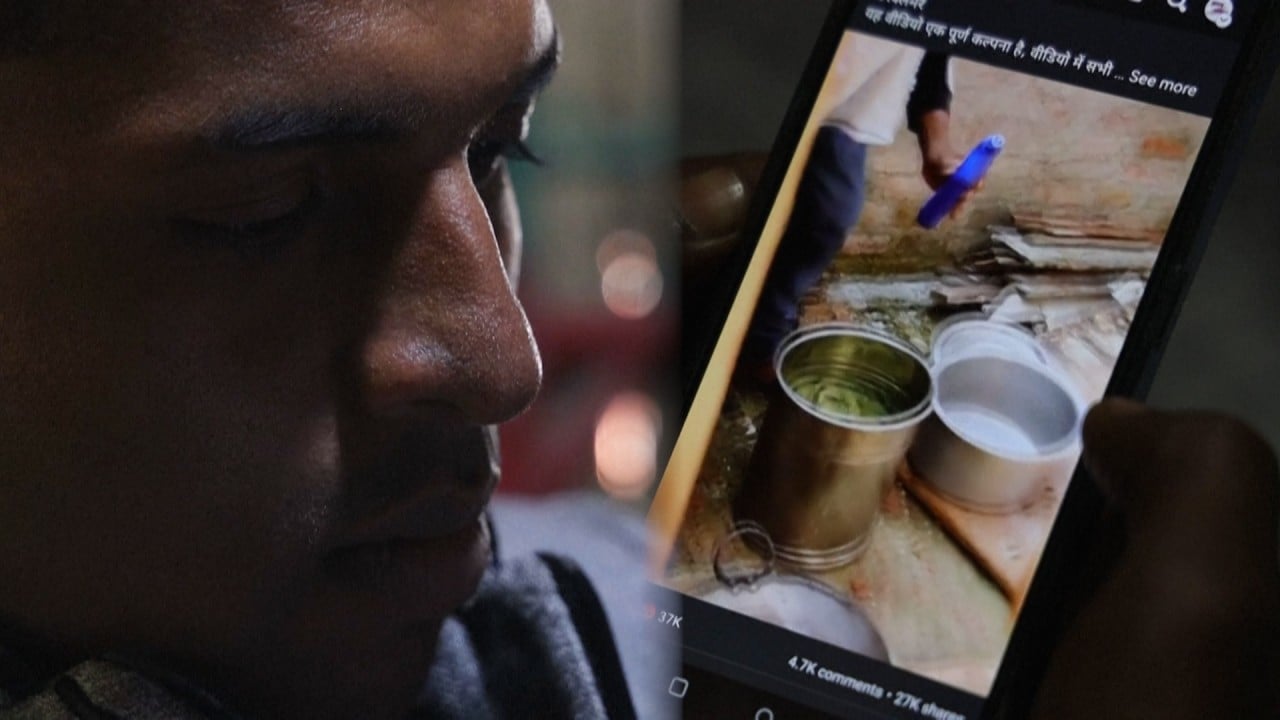
Cambodian PM Hun Sen switches social media loyalty from Facebook to Telegram in face of potential ban
- The long-serving prime minister said he will no longer upload to Facebook where he has 14 million followers
- Hun Sen could be temporarily banned from the platform over controversial remarks he posted earlier this year on it
Cambodian Prime Minister Hun Sen, a devoted and very active user of Facebook – on which he has posted everything from photos of his grandchildren to threats against his political enemies – said on Wednesday that he will no longer upload to the platform and will instead depend on the Telegram app to get his message across.
Telegram is a popular messaging app that also has a blogging tool called “channels.”
The 70-year-old year Hun Sen, who has led Cambodia for 38 years, is listed as having 14 million Facebook followers, though critics have suggested a large number are merely “ghost” accounts bought in bulk from so-called “click farms,” an assertion the long-serving prime minister has repeatedly denied.
Hun Sen officially launched his Facebook page on September 20, 2015, after his fierce political rival, opposition leader Sam Rainsy, effectively showed how it could be used to mobilise support. Hun Sen is noted as a canny and sometimes ruthless politician, and has since then managed to drive his rival into exile and neutralise all his challengers, even though Cambodia is a nominally democratic state.
Hun Sen said he is giving up Facebook for Telegram because he believes the latter is more effective for communicating.
In a Telegram post on Wednesday, he said it will be easier for him to get his message out when he is travelling in other countries that officially ban Facebook use, such as China, the top ally of his government. Hun Sen has 855,000 followers so far on Telegram, where he appears to have started posting in mid-May.
It is possible, however, that Hun Sen’s social media loyalty switch has to do with controversy over remarks he posted earlier this year on Facebook that in theory could see him get at least temporarily banned from the platform very soon.
In January, speaking at a road construction ceremony, he decried opposition politicians who accused his ruling Cambodian People’s Party of stealing votes.
“There are only two options. One is to use legal means and the other is to use a stick,” the prime minister said. “Either you face legal action in court, or I rally [the Cambodian] People’s Party people for a demonstration and beat you up.” His remarks were spoken on Facebook Live and kept online as a video.
Perhaps because of heightened consciousness about the power of social media to inflame and trigger violence in such countries as India and Myanmar, and because the remarks were made ahead of a general election in Cambodia this July, complaints about his words were lodged with Facebook’s parent company, Meta.
Facebook’s moderators declined to recommend action against Hun Sen, judging that his position as a national leader made his remarks newsworthy and therefore not subject to punishment despite their provocative nature.
However, the case was forwarded in March to Meta’s Oversight Board, a group of independent experts that is empowered to render an overriding judgment that could limit Hun Sen’s Facebook activities. They are expected to issue a decision on Thursday. The case is being closely watched as an indicator of where Facebook will draw the line in countries with volatile political situations.
Hun Sen said his Facebook account will remain online but he will no longer actively post to it. He urged people looking for news from him to check YouTube and his Instagram account as well as Telegram, and said he has ordered his office to establish a TikTok account to allow him to communicate with his country’s youth.


